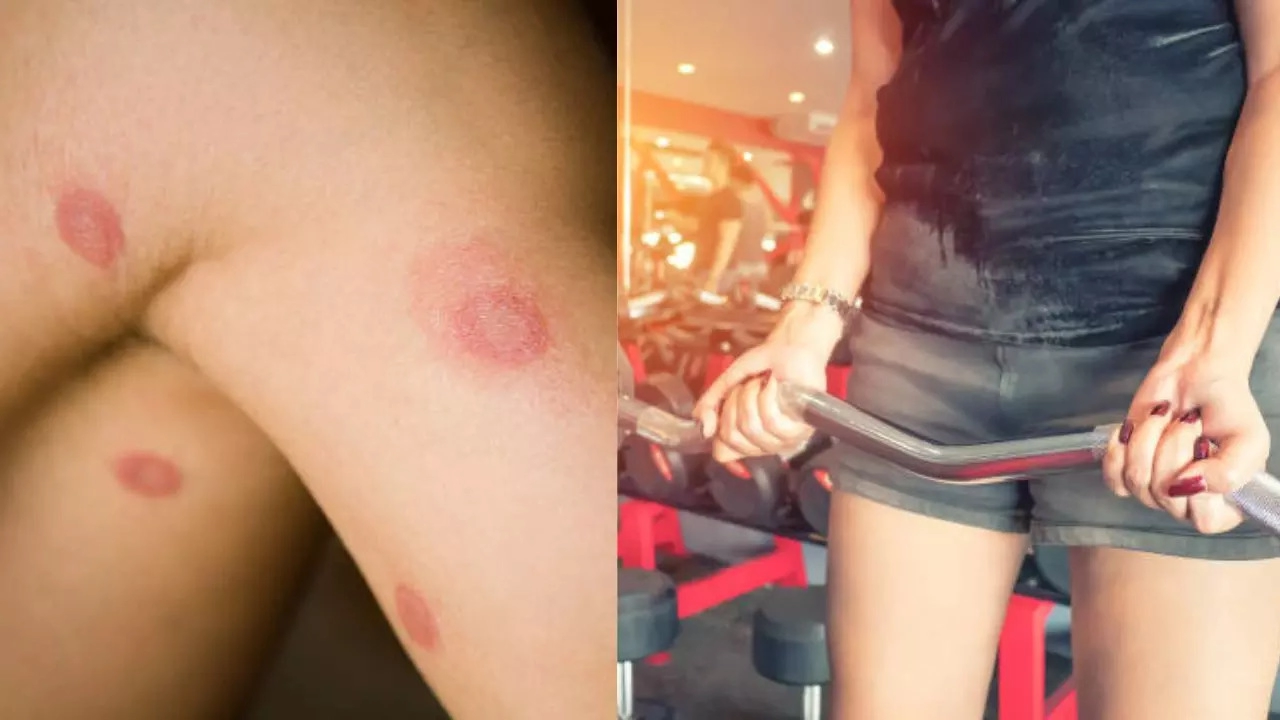
In the gym, any kind of infection, including ringworm can spread by walking around barefoot or using unclean equipment like handles and weights
According to experts, ringworm is one of the most common fungal infections caused by dermatophyte – a fungus. It thrives in warm, dark, moist environments like gym locker rooms and sweaty sneakers, and causes athlete’s foot and jock itch. While athletes' foot leads to white, scaly, and itchy blisters on their feet, Jock itch causes red, painful, and itchy, red-shaped blotches in the groin area.
All types of ringworm can cause red, scaly circles anywhere on your body, including your arms, legs, and midsection.
How does ringworm infection spread in the gym?
In the gym, any kind of infection – including ringworm can spread by walking around barefoot or using unclean equipment like handles and weights. Also, common areas like sauna rooms and benches where towels are shared pose grave risks due to the humidity and potential for skin contact.
Since ringworms, which typically begins as a flat and discoloured patch, thrive in warmer temperatures the infection is particularly susceptible to transmission in shared facilities like gym due to the prevalence of skin-to-surface contact and the presence of moisture.
Signs and symptoms of ringworm infection
Symptoms of a ringworm infection typically appear between four and 14 days after your skin has come in contact with the fungi that cause ringworm. A few signs include:
- Circular, ring-shaped scales or plaques
- Flat patches with a raised, round border
- Itchy, dry skin
- Hair loss or bald spots in the affected area
How can you prevent ringworm infections in the gym?
According to experts, preventing a ringworm infection involves:
- Changing your socks and underwear daily or more frequently if they become damp or soiled
- Showering immediately after contact sports or exercise
- Wearing sandals or shower shoes at the pool and in public locker rooms and showers
- Drying your skin thoroughly after showering, especially between your toes
- Avoiding sharing towels, washcloths, sheets, clothes, combs or other personal hygiene items
- Washing clothes, athletic gear, sheets, and towels in hot water and detergent
- Disinfecting surfaces with bleach or sprays
- Washing hands thoroughly
Long-term effects of ringworm
Even though a ringworm infection may not compromise your immune system or impair its function, repeated infections cause permanent skin damage like thinning, rough patches, and pigmentation changes. According to doctors, those with weak immunity like diabetes or vitamin deficiencies are more susceptible to recurrent infections.
Get Latest News Live on Times Now along with Breaking News and Top Headlines from Health and around the world.